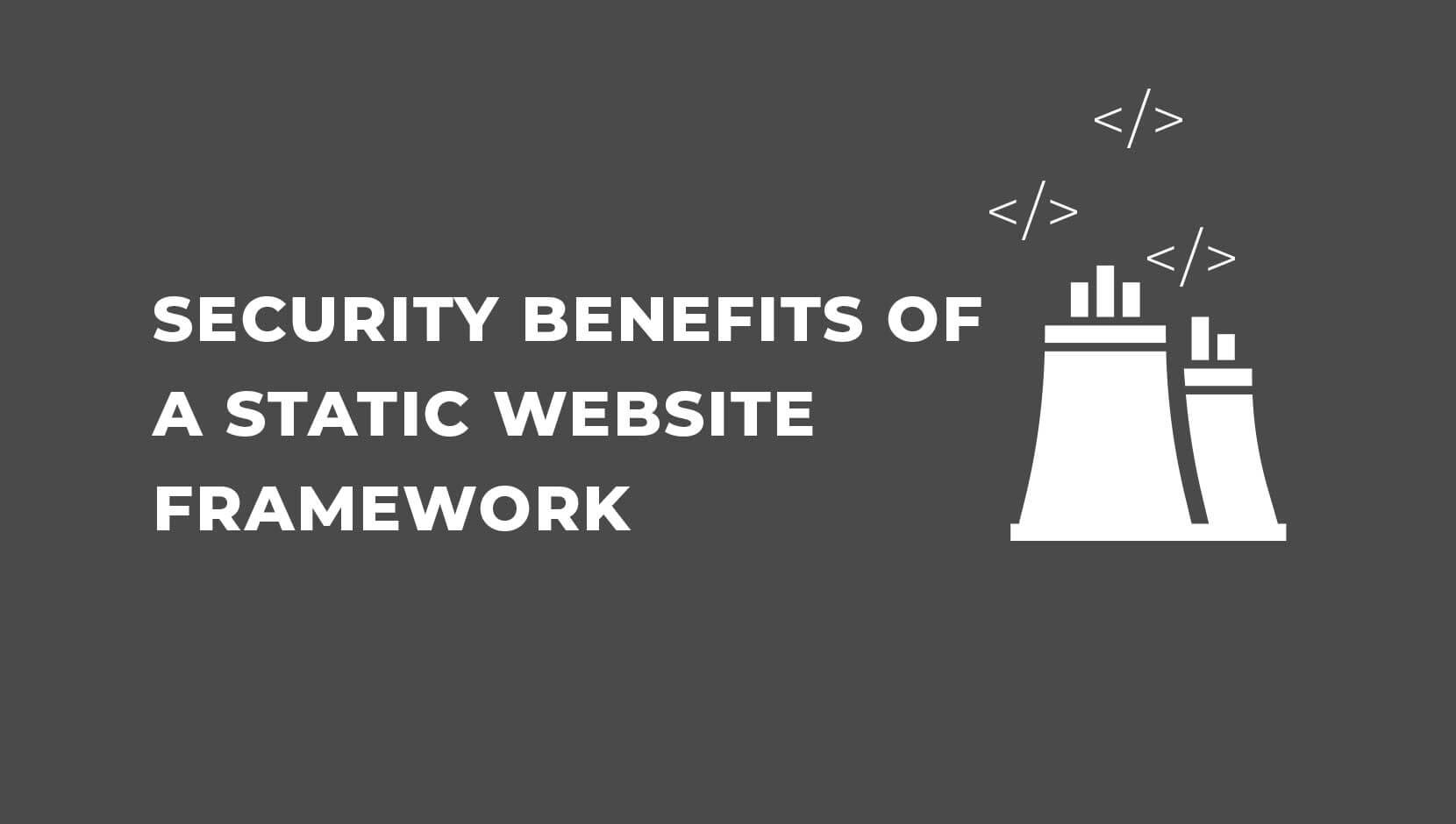A Content Management System (CMS) like WordPress is great for managing digital content, but having to constantly update your website can be a huge time-suck. That’s why so many people are making the switch to a static website framework. But there’s an even better reason: WordPress security is constantly under attack.
WordPress is one of the most popular CMSs in the world, so it’s no wonder it’s often targeted by hackers. WordPress security issues can be staved off by updating your plugins, but who has the time to keep track of all the plugins your website needs to function?
Enter: The static website framework.
What is a static website framework?
There are two main website categories: the static website framework and the dynamic website framework.
A static website framework is static or fixed, which means that once it’s been designed and stored on a server, it’s delivered to your visitors’ browsers exactly as stored. When a developer creates the web content using HTML, the content is uploaded to a server where it can be accessed whenever a visitor requests it.
Static webpages employ “fixed code”, and nothing ever changes on the webpage. It’s like a virtual brochure. (This is why many refer to static websites as “brochure sites”.)
Nothing on a static webpage will change unless the site is redesigned or the site admin manually changes the code.
A dynamic website, on the other hand, is almost constantly changing. These websites are usually powered by a CMS like WordPress. With a dynamic website, the CMS builds each page every time a user requests it. When a developer creates the web content, it’s stored in a database. When a visitor requests a web page, the CMS retrieves the page from the database, loads an HTML template, renders the web page, formats the web page, then sends it to the visitor’s browser.
Why a CMS can cause trouble:
- CMSs are popular. This might not seem like a bad thing, but it’s the popularity of CMSs that’s caused so much trouble for WordPress security in recent years. Because hackers can count on a significant portion of websites being run by WordPress, they can save time by targeting WordPress users and exploiting vulnerabilities that are unique to WordPress.
- They’re hard on servers. Unlike static websites, dynamic websites need to build each page every single time a user requests it. This means the PHP code needs to be activated, so it can communicate with the database, create an HTTP response, and send it back to the web server, which then sends the HTML file to the visitor’s browser.
- They’re a security nightmare. Many CMSs rely on constant updates to stave off attacks. And the database is a big red bullseye for hackers to target.
4 security benefits of a static website framework
1. Smaller attack surface
A static website has a smaller attack surface than a dynamic website. An attack surface describes all the points of entry a hacker can use to attack your system. Out-of-date software plugins, the website database, and fields for entering user data are all part of a website’s attack surface. Because static websites remove the database from the attack surface, this means there are fewer points of entry into your system, which makes your website harder to attack.
2. Less vulnerable to specific attacks
Because there’s no database, static websites are less vulnerable to common implementation vulnerabilities like SQL database injections and Cross-Site Scripting (XSS). It’s also impossible for hackers to take advantage of server-side security holes in the database.
3. No need to update or patch
WordPress security has become a major issue, because it’s so popular that even a low-rent hacker can attack a website by simply downloading and running tools that exploit WordPress vulnerabilities. With static websites, there’s no code running, because the whole system revolves around simple retrieval of static files. This means that there’s nothing to exploit, and there’s no need to update plugins or patch security holes.
4. Block Malicious code injection
Because a static website can’t change, malware can’t be injected into your webpage. Dynamic websites, on the other hand, are notoriously susceptible to malware attacks.
Static websites are definitely more secure than dynamic websites, but that doesn’t mean you don’t need to secure your static website framework.
Your static website framework needs SSL
You might think that because you have a static website, you don’t need to get an SSL certificate, but this isn’t true. Even your static website needs SSL certificate protection, and here’s why:
- Protects your search engine ranking. Google incentivises websites to switch to HTTPS, which means your website gets a small ranking boost from doing this.
- Protects your source code. Even though your static website offers a smaller attack area for hackers to exploit, a determined hacker can still get at your source code with enough effort and determination. An SSL certificate is a great way to protect your source code.
- Increases public trust. Even if you have a static website, most casual internet browsers won’t be able to tell the difference just by looking at your website. But an SSL certificate is an easily identifiable sign that visitors can trust your website.
We want you to take advantage of the increased web traffic and security that comes with having an SSL certificate. That’s why we’ve partnered with Luxhosting to give you a free SSL certificate! (Just select from the FLATsite-approved hosting partner Luxhosting to benefit.)
The Takeaway
Static websites are easier to manage and harder to hack than dynamic websites. So, if plagued with WordPress security issues, static websites are your best bet for a problem-free life!







